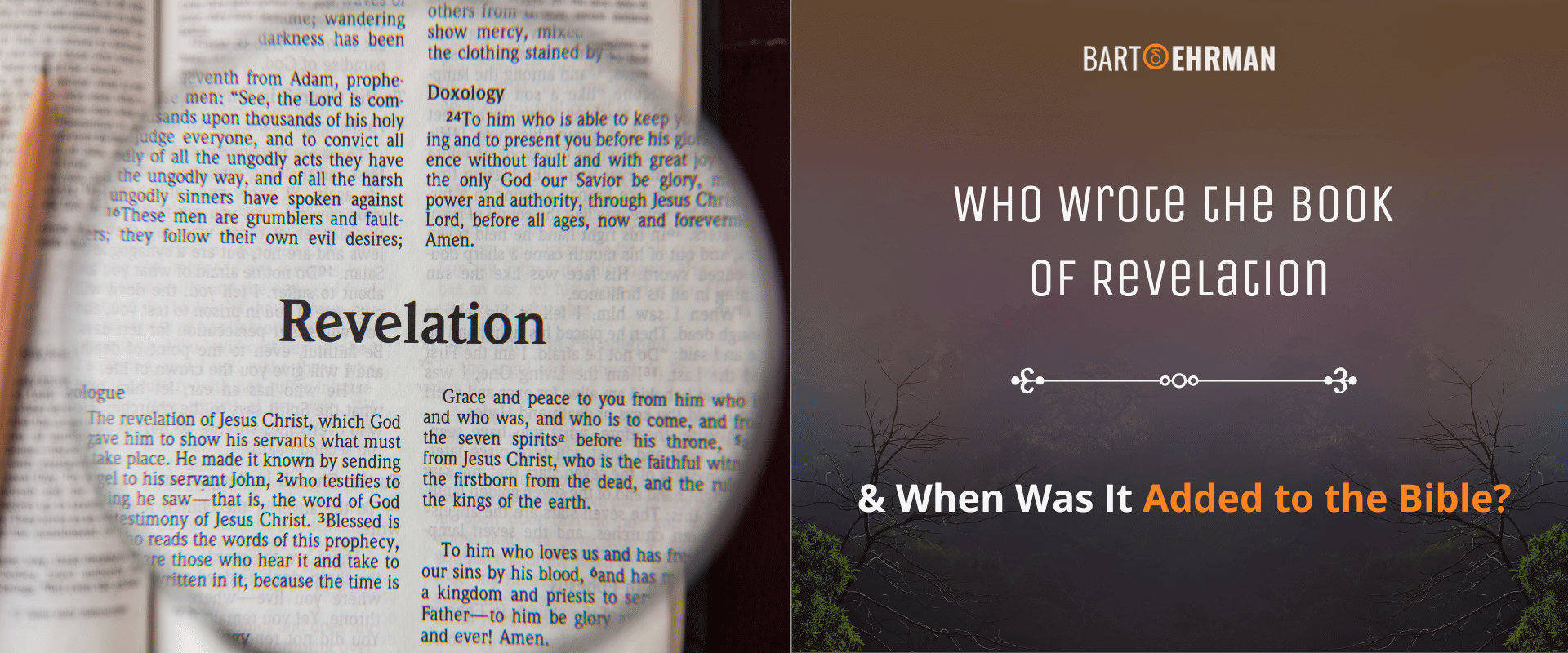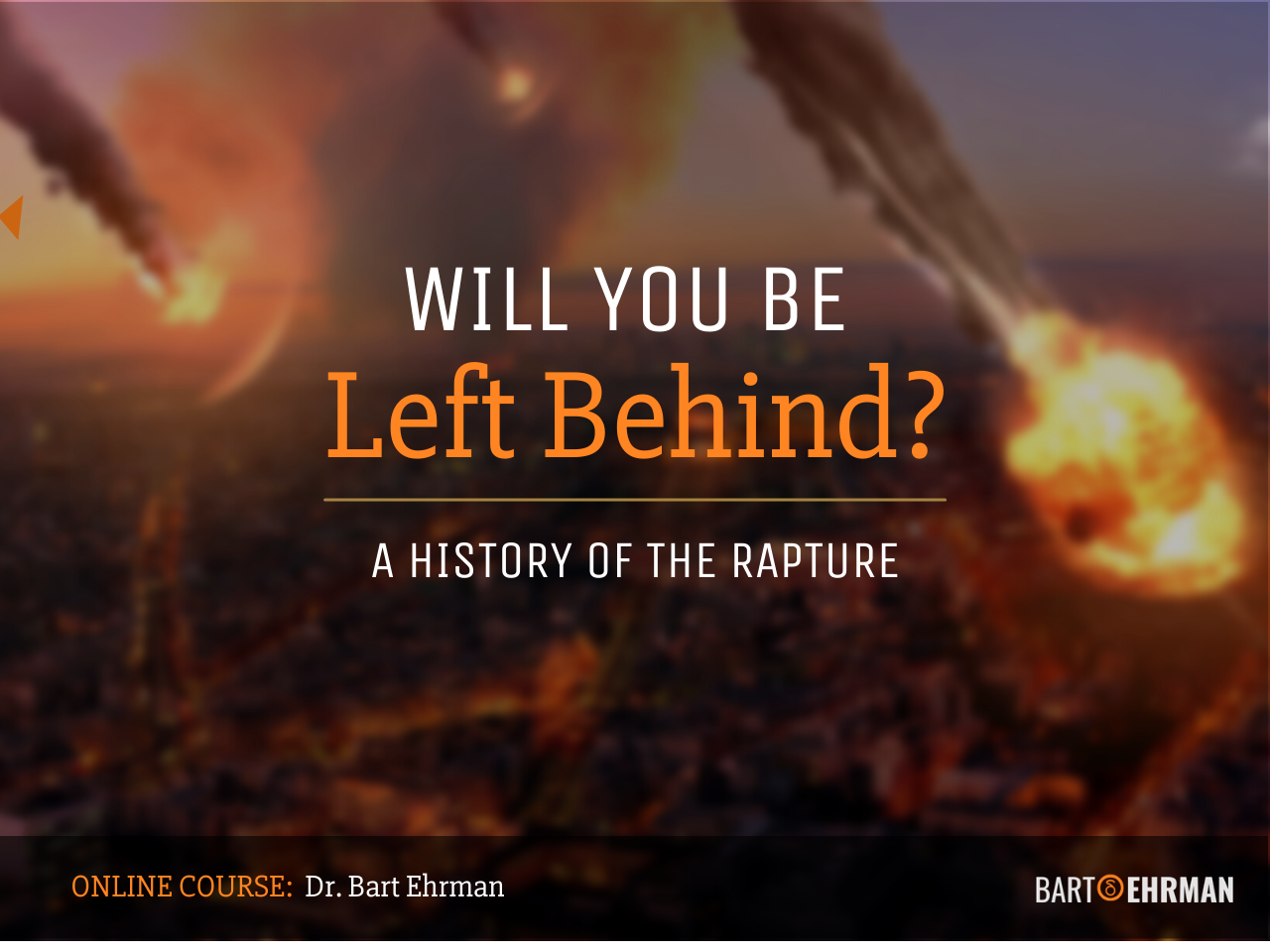Who Wrote the Book of Revelation? The Surprising Answer!

Written by Marko Marina, Ph.D.
Author | Historian | BE Contributor
Verified! See our guidelines
Verified! See our editorial guidelines
Date written: August 25th, 2023
Disclaimer: The views and opinions expressed in this article belong to the author and do not necessarily match my own. - Dr. Bart D. Ehrman
Who wrote the Book of Revelation? At first glance, Revelation might seem like a fantastical account penned by a visionary mystic. Its pages are alive with surreal imagery—beasts, angels, heavenly battles, and cosmic cataclysms—depicting a world teetering on the brink of ultimate transformation.
But who is the mastermind behind this apocalyptic narrative? Was it the apostle John, a prophet, or an early Christian writer seeking to convey profound spiritual truths?
Let’s begin by looking at the traditional theory regarding the authorship of Revelation!

The Gospel of John and the Revelation: Traditional Theory
According to the Church’s prevailing theory, the author of the Book of Revelation was John, one of Christ’s apostles. The earliest external evidence dates back to the 2nd century CE and comes from Justin Martyr, who identifies John as the author in his Dialogue with Trypho.
This theory was accepted later by other 2nd and 3rd-century Church writers such as Irenaeus (Against the Heresies, 4.20.11.), Tertullian (On Prescription Against Heretics, 36), and Clement of Alexandria (The Rich Man’s Salvation, 42).
In other words, the traditional paradigm holds that the apostle John wrote both the Gospel of John and Revelation.
How old was John when he wrote the Revelation? Since John was believed to be among the youngest Jesus’ disciples, and the Book of Revelation was written at the end of the 1st century, he would have to be quite old when he wrote it.
However, modern scholarship has cast severe doubts on the traditional theory!
Let’s take a look at the external attestations!
What the Early Church Said about John's Authorship
Unlike the New Testament Gospels, the authorship of Revelation sparked serious controversies within the Church as early as the 3rd century CE. The main problem was that the Gospel of John and the Book of Revelation differ considerably in style and theology. How could that be if the same person wrote them?
The earliest instance of a substantial objection to the Book of Revelation arises with Gaius in the early third century. He dismisses the book based on the argument that it was a fabrication by the heretic Cerinthus.
In the middle of the 3rd century, Alexandrian Bishop Dyonisius raised further objections.
He emphasized in one of his letters: “By the phraseology also we can measure the difference between the Gospel and Epistle and the Revelation. The first two are written not only without any blunders in the use of Greek but with remarkable skill regarding diction, logical thought, and orderly expression.”
As it turns out, modern scholarship concurs with the bishop’s analysis. In the Introduction to the New Testament, Delbert Burkett concludes: “Most scholars today, therefore, attribute the Revelation and the Gospel to different authors, neither of which was the apostle John.”
Who wrote the Book of Revelation? The evidence based on the external attestation does not support the same author for both Gospel and Revelation.
The Internal Evidence and the Identity of John
In The New Testament: A Historical Introduction to the Early Christian Writings by Dr. Bart Ehrman, it is rightly pointed out that “almost all of the ancient apocalypses were written pseudonymously in the name of a famous person from the past.”
However, the Book of Revelation is a rare exception! In the first place, the author of Revelation identifies himself as “John” (1,1; 22, 8).
Moreover, the author doesn’t place the composition of his book centuries in the past. Instead, John puts its narrative in his own time. He also names the intended recipients of his vision as “the seven churches in Asia” (1,4).
Furthermore, he does provide us with some information about himself. He is the “brother” of these Christians in Asia, and he relates to their hardships.
He composes his message while situated on the island of Patmos (Western coast of Asia Minor). That is the reason why he is often called John of Patmos. Unfortunately, given his readers’ familiarity with him, he refrains from delving further into his identity.
John of Patmos Never Claims to be Jesus's Apostle
But he never claims to be Jesus’s apostle! Quite the contrary! In his recent study Armageddon: What the Bible Really Says about the End, Bart notes that throughout the narrative, John indicated he was not among the twelve apostles.
In Chapter 4, John witnesses the vision of twenty-four “elders” encircling God’s throne, engaging in ceaseless worship day and night.
This passage suggests that the twelve patriarchs of Israel and the twelve apostles of Jesus are symbolically represented in John’s imagery and that John is not a part of this group.
Could John, the Son of Zebedee Even Read and Write?
Based on everything we know about the apostle John, it is doubtful that he could be the author of Revelation.
Modern research indicates that only a tiny percentage (5-10%) of individuals in ancient times were literate, typically belonging to the wealthy upper class with access to education, a fact which casts doubt on most of the tradional authors of the New Testament except Paul – who was well educated.
Do you want to know more about literacy in the ancient world? Read the excellent study “Ancient Literacy” by renowned classicist William Harris!
The probability of an uneducated poor Galilean fisherman like the apostle John being educated was extremely low. Additionally, John is explicitly called ἀγράμματος in Acts 4,13, which means he was illiterate.
Who wrote the Book of Revelation? The internal evidence does not support the same author for both Gospel and Revelation. Now, whether the author of one of these is the apostle, John still needs to be discussed.
What We Do Know About John of Patmos?
Nevertheless, we can say some things about his cultural background. John of Patmos appears to have been a regional spiritual leader and a prophet. He likely had a following of students due to his charismatic leadership style.
Furthermore, his Greek is very poor. He makes a lot of grammatical mistakes, and his sentence structures are not sophisticated at all. Some scholars find various explanations for his bad grammar, but I favor Bart’s straightforward solution: “John simply did not write well.”
Was John blind when he wrote Revelation? While he claims to live on the island of Patmos “because of the word of God and the testimony of Jesus (1,9)”, we don’t know anything about his potential physical condition.
The Book of Revelation and the Bible: Making the Canon
When was the Book of Revelation added to the Bible? The formation of the Bible was a complex process that spanned centuries, involving the compilation of diverse texts and the discernment of what constituted sacred scripture. Amidst this intricate mosaic, the Book of Revelation awaited its moment of recognition.
Writing at the beginning of the 4th century, bishop Eusebius read the previous Christian authors to see which books they cited and emphasized as authoritative. He ended up with four categories of books:
- Recognized books – those that most Christians consider Scriptural. They include four Gospels, The Acts of the Apostles, Paul’s letters, 1 Peter, and 1 John.
- Disputed books – those that caused debates among the Christians. They include James, Jude, 2 Peter, 2 and 3 John.
- Spurious books – For Eusebius, these books weren’t dangerous, but they weren’t necessarily authentic writings of the apostles. He placed the following books in that category: Acts of Paul, Revelation of Peter, and Shepherd of Hermas.
- Impious books – The fourth and final category written by heretics. Among others, they include The Gospel of Peter, The Gospel of Thomas, etc.
Where is the Revelation of John in Eusebius’ List?
What about the Revelation of John? Eusebius informs us that some Christians put it in the Spurious category, but others in the Recognized category.
In other words, at the beginning of the 4th century, there were debates about the canonical status of Revelation.
However, the Book of Revelation eventually ended up in the Bible. Why? In Armageddon, Bart emphasizes two key factors:
- It was used in the Christological debates of the 4th century. The most important was the discussion of the nature of Christ. Was he subordinate to God the Father or utterly equal to him? Revelation was a valuable source for those who favored the latter theory.
- The fact that authoritative figures such as St. Augustine or St. Jerome quoted the Book of Revelation as Scripture. Moreover, St Jerome assumed that the apostle John was the author.
Including the Book of Revelation in the Bible was gradual over several centuries. However, the later part of the 4th century seems to be crucial.
The formal recognition of the Book of Revelation as part of the New Testament canon was solidified through church councils. Both the Council of Hippo in 393 CE and the Council of Carthage in 397 included Revelation among accepted books.
The Revelation and the Rapture: Summing up Conclusions
Who wrote the Book of Revelation? The author was John of Patmos, not to be confused with the disciple John.
When was Revelation added to the Bible? It took time for the Book of Revelation to gain wider acceptance. However, it seems that the canonical status of Revelation was accepted in the later part of the 4th century.
As we conclude our exploration into the captivating origins of the Book of Revelation and its place within the Bible, we invite you to take the next step in your quest for knowledge.
Join renowned scholar Bart Ehrman in his illuminating course, “Will You Be Left Behind?”. In this unique journey, Bart brings his expertise to the forefront, examining the concept of the Rapture and the Book of Revelation from a scholarly standpoint. Click the link below.

